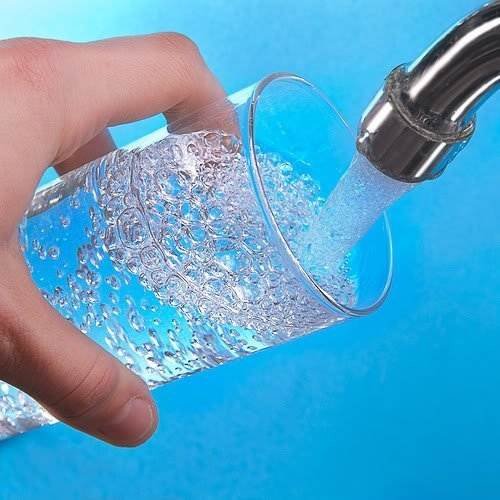One in ten people could get kidney stones in their lifetime. There are several things that you can do at home to treat and even prevent kidney stones. Here are 22 tips.
Tips to Treat and Prevent Kidney Stones
1. Drink Water. Probably one of the simplest things that you can do, drinking water can really help lessen your chance of getting kidney stones. You should drink a minimum of 50% of body weight in ounces of water daily. For example, a 150 pound person should drink 75 ounces of water.
2. Eat well. Eating good foods can reduce your risk of developing kidney stones. Foods like: leafy green vegetables, fruits, whole grains, legumes, fish and poultry (in small portions), brown rice, bananas, oats and barley.
3. Stay Active. Exercising and staying active can help prevent kidney stones. Studies have shown that people who lead active lifestyles are less likely to develop kidney stones. Start exercising every day to reduce your risks.
4. Castor Oil Pack. Castor oil has anti inflammatory properties and may be used to relieve painful cramping or spasms. To make a pack, soak a towel in castor oil, and put it where it hurts.
5. Hot pack. A hot pack can help relax muscles that are tense from the pain of kidney stones. They can also help the stones pass easier.
6. Hot Vinegar. Hot vinegar can help with the severe pain of kidney stones. Soak a towel in a 50:50 vinegar-water solution. Place it over the painful area.
7. Restricting Oxalates. Restricting foods high in oxalates can help prevent kidney stones. These foods include: beets, collards, okra, coffee, soya milk, beer, spinach, and sweet potatoes.
8. Careful of Vitamin C. Some studies show that actually restricting your vitamin C consumption may help prevent kidney stones. More than 3 to 4 grams per day can increase oxalate production, and thus increase the risks of kidney stones.
9. Watch out for D. Excessive amounts of vitamin D can mean increase risk for kidney stones. Too much vitamin D can mean too much calcium, which can put you at risk for kidney stones. Never get any more than 400 IU of vitamin D per day or stay within your daily caloric needs.
10. Other things to Avoid. Other things that you should avoid is sugar, antacids, excessive protein, dairy products, salt, carbonated beverages, and caffeine to lower your risk of getting kidney stones.
11. Oral Calcium Myth. Restricting your intake of calcium doesn’t seem to lower your risk. Researchers have found that women with the highest calcium intake are less likely to develop kidney stones than are women who consume less calcium.
12. Magnesium Citrate. Studies have shown that low magnesium intake can mean high risk for kidney stones. Taking magnesium supplements may not only prevent stones from forming, but it can decrease the size of an existing stone. A good dose is 500 mg daily.
13. Vitamin B-6. Researchers have found that a vitamin B-6 deficiency tends to increase urinary oxalate, which may then lead to kidney stones. A good dose is 25 mg per day. However the best foods to get Vitamin B-6 are pork, poultry, fish and eggs.
14. Vitamin A. Foods rich in vitamin A have been known to treat and prevent kidney stones. Some of these foods include: apricots, broccoli, cantaloupe, watermelon, pumpkins and squash.
15. Bearbery is an evergreen shrub that can be used as a diuretic and antiseptic for the urinary tract. It has been used for a long time to fight urinary tract or bladder infections. You can find Bearberry in a health food store in tea form or capsules.
16. Cleavers have a history of treating congestive kidney disorders, stones, and urinary infections. Cleavers are also known as Clivers, Goosegrass or Bedstraw. You can find them at any herbal store.
17. Corn silk is used to sooth the pain of kidney stones. It also has mild diuretic properties. Corn silk can increase the urine flow and heal your kidney. You can get corn-silk at your local herb store.
18. Cramp Bark is used to relax smooth muscles, and is also works as an antispasmodic. This really helps with the pain of kidney stones. Again, you can get this at a herbal or heath food store.
19. Gravel root is used to for many things, including kidney stones. It also helps with the following conditions: urinary infections, prostatitis, pelvic inflammatory disease, rheumatism and gout.
20. Khella has been treating kidney stones for a long time. Research has shown that it relaxes ureter tissue, allowing smaller stones to pass easier.
21. Seven Barks is a herb that has a sedative effect on the urinary system. It helps the system to relax, making kidney stones easier to pass through.
22. Stone Root is a strong diuretic that has a history of helping kidney stones pass as well as preventing any more from forming.
If this article was helpful, share this page with others. Plus you can leave a comment below. We love to hear from our readers.


Thanks